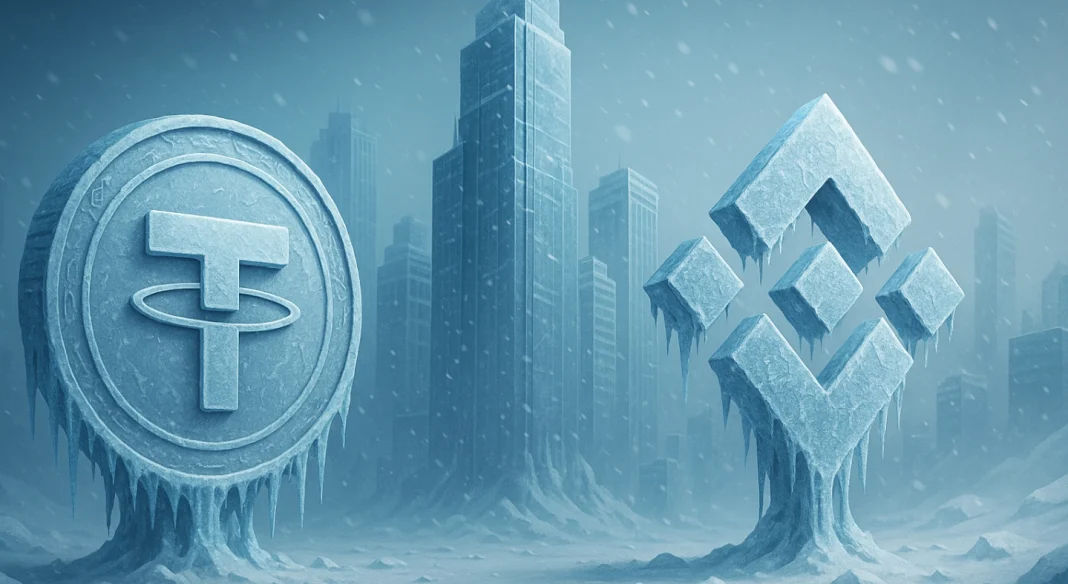The European Union’s rolling out its big, shiny Markets in Crypto-Assets regulation.
Six months in, and 53 crypto companies just got the golden ticket to operate across the entire European Economic Area.
That’s right, one license to rule them all, spanning 30 countries like a boss.
European crypto rulebook
But two heavy hitters, Tether and Binance, are nowhere to be found on the list. The giants that everyone talks about?
Missing. It’s like the office party where the boss’s favorite employees show up, but the star players decide to ghost.
What’s going on? Let’s break it down. According to Patrick Hansen, Circle’s EU Policy Head, 39 crypto-asset service providers and 14 stablecoin issuers have snagged MiCA licenses.
𝐌𝐢𝐂𝐀 6-𝐌𝐨𝐧𝐭𝐡𝐬 𝐒𝐭𝐚𝐭𝐮𝐬 𝐔𝐩𝐝𝐚𝐭𝐞: 𝐅𝐮𝐥𝐥 𝐋𝐢𝐬𝐭 𝐨𝐟 𝐀𝐮𝐭𝐡𝐨𝐫𝐢𝐳𝐞𝐝 𝐒𝐭𝐚𝐛𝐥𝐞𝐜𝐨𝐢𝐧 𝐈𝐬𝐬𝐮𝐞𝐫𝐬 & 𝐂𝐫𝐲𝐩𝐭𝐨-𝐀𝐬𝐬𝐞𝐭 𝐒𝐞𝐫𝐯𝐢𝐜𝐞 𝐏𝐫𝐨𝐯𝐢𝐝𝐞𝐫𝐬 🇪🇺
6 months into MiCA’s application for CASPs — and 12 months for stablecoins — here’s… pic.twitter.com/5mZwOg30qq
— Patrick Hansen (@paddi_hansen) July 7, 2025
This means firms like Coinbase, Kraken, Bitstamp, and even traditional finance players like Robinhood and BBVA are now officially playing by the EU’s rulebook.
France, Germany, and the Netherlands are leading the charge on stablecoins, with nine out of the 14 authorized issuers hailing from these countries.
On the CASP side, Germany and the Netherlands dominate, accounting for 23 of the 39 licenses. It’s like a crypto regulatory relay race, and these countries are sprinting ahead.
Reputation
Now, why are Tether and Binance missing? Let’s start with Tether. The company behind USDT, the world’s biggest stablecoin has been dodging a full independent audit for years. And there’s a price, you know.
Critics, like Consumers Research, have been waving red flags, pointing out Tether’s long-standing promise to deliver a full audit that never quite materializes.
CEO Paolo Ardoino recently spilled the beans on why top auditors are hesitant, the crypto world’s reputation is scarier than a haunted house, and no Big Four firm wants to risk its entire banking clientele for a few stablecoins.
Outlaws?
Binance’s absence? That’s a story of regulatory headaches. The exchange has been pulling back from several EU countries, Germany, the Netherlands, Cyprus, amid investigations and license withdrawals.
French authorities are poking around for alleged money laundering, and Binance’s European operations have been reshuffled, cutting down on risky features like copy trading and unregulated stablecoins.
MiCA’s tough transparency and governance rules aren’t making it easy for them either.
So, what’s next? The EU’s got a 9-month check-in coming up in September. Will Tether and Binance finally get their act together? Or will they stay the outlaws? The million dollar question, right?
Disclosure:This article does not contain investment advice or recommendations. Every investment and trading move involves risk, and readers should conduct their own research when making a decision.
Kriptoworld.com accepts no liability for any errors in the articles or for any financial loss resulting from incorrect information.


